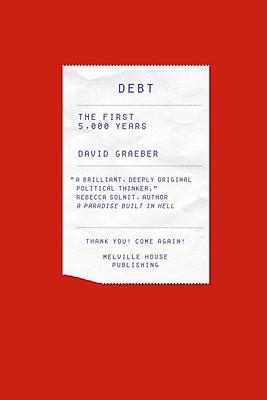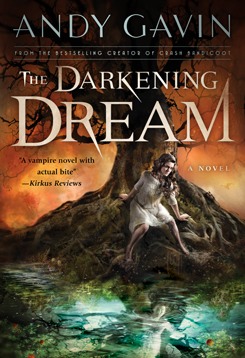 Title: Debt: The First 5,000 Years
Title: Debt: The First 5,000 Years
Author: David Graeber
Genre: History/Economics
Length: 544 pages
Read: Sept 9-17, 2012
Summary: Mind blowing!
I’m a multi-disciplinary thinker and I read a lot about history, so I consider most people mistaken when they assume the complexities of the modern world are new and unprecedented. Certainly there are remarkable changes occurring, like the internet, but most existing institutions are grounded in historical ones and human nature hasn’t shifted a millimeter.
Occasionally, I’ll read a book that sheds a broad swath of light on the big patterns that have given rise to our world. Guns, Germs, and Steel was one of these. Repetitive and over-simplifying it was, but it touched on something primal in the human condition: what the author called “history’s broadest pattern.”
Debt deals with another: the very basis of value and obligation, which are at the root of what we vaguely call economics.
The first half of this book blew my mind. It places debt at the very core of what it means to live in a human society. It torpedoes a number of fundamental economic assumptions, and then promises to lay out a history of the institution. I was left with the feeling that if I persevered through all 544 pages a great secret would be revealed, an Eleusinian Mystery of sorts. The second half didn’t quite fulfill on this promise, but that doesn’t change the fact that anyone interested in politics OR economics OR being human should probably read this book.
Insights include Graeber’s attack on the “myth of barter.” Generally, economic theories assume that money arose to deal with the fact that barter was awkward. Debt argues that barter societies never really existed, and that credit and virtual money always dominated human interactions before the arrival of coinage (roughly 600 BC). This I buy 100%. In my readings about the pre-coinage ancient world (mostly Ancient Egypt and Mesopotamia) it has long been clear to me that “money” existed, if only on paper (achem… clay tablet). Heck, writing, and therefore history itself, was invented as a tool to record debts. The earliest documents are all ledgers: “so-and-so owes the temple fifteen chickens and thirty-two bushels of grain” and that sort of thing. Early civilizations usually converted productions into one or more virtualized “money” currencies, like bushes of grain (not so coincidentally called shekels!). Few lugged piles of grain or weights of silver around with them, they merely agreed to the common value of various goods in these units. Therefore: money!
Graeber makes mind opening points about the relationship between debt, money (which is often about exact measurement of debt), the state, and human politics and freedoms. States were/are fundamentally military and money exists in no small part as an expediency to supply the army. He questions again and again the assumption that “everyone should pay their debts” and points out that really translates to “everyone should pay their debts unless they are holding the gun.” This leads to tackling and exploring the conditions that lead to that most unpleasant and also long-lived of human traditions: slavery. His discussion of the relationship between “human context” and the lack of it being a prerequisite for chattel slavery is alone worth the price of admission.
He also explores the incredible tie between debt and morality. Our relationship with God is usually even couched in credit terms: reckoning, redemption, and so on.
Much of the middle of the book explores four big periods of history. 1) the pre-coinage credit kingdoms of the remote ancient world 2) the axial empires of middle antiquity (600BC – 600AD) 3) the middle ages and 4) the modern imperialist era. He points out that these periods oscillate between credit and bullion based economies. He also argues that we have recently moved into a new 5) credit economy. I’m not, myself, sure that the current period isn’t more of an evolution of the imperialist/capitalist stage, but anyway.
However, Graeber is not without bias. He appears to despise the coinage ages and glorify the credit based ones while I see things as more of a progression. He is perhaps right that the “axial age” (600BC – 600AD) was dominated by bullion/military/slavery economics and a tremendous scale of warfare. But he seems to ignore the subsistence living of the prior and middle ages and the wild cultural and population growth allowed by the expanding axial economy. He seems to have a love affair with the middle ages, particularly in their Eastern incarnation (read the Caliphate period). Don’t get me wrong, I have a bit of an Arabian Nights fetish myself, but this was not a time and place free of human misery. Far better that Western Europe during the dark ages, sure, but we all knew that (or should have).
In the later stages of the book, when discussing the Imperialist and modern eras, Graeber remains fascinating, but grows a bit confused and political (in the sense of having an axe to grind as opposed to discussing politics, which are, after all, fundamental to the work). I’m not sure where he leaves us, in our world of debt imperialism and mandatory expansion, but he certainly provides tremendous food for thought. His is a keen mind that resists carving culture, history, and all that into neat little bundles. Civilization is a messy knot. More scale, more people, bigger cities, bigger armies, it all requires infrastructure. Resources must be moved, systems must be invented, the machinery of state and the greed of individuals must be fed. Where does it all end? Who owes whom?



